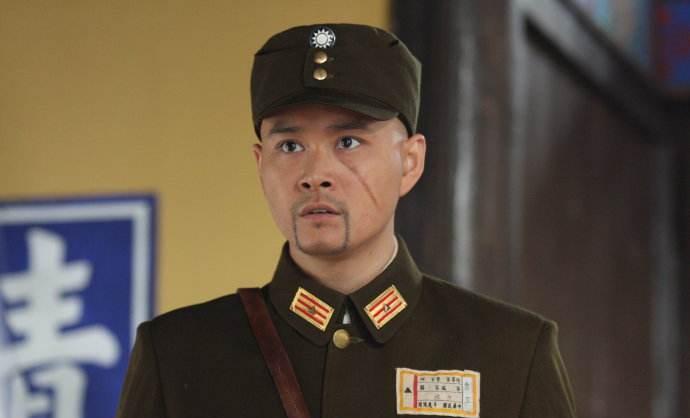In the War of Liberation, all the rebel generals were generally treated very well after the founding of the country, but the insurrectionary general I want to talk about today was an exception, this person revolted on the eve of the founding of the country, but Marshal Chen Yi resolutely did not allow him to revolt, and later arrested him and imprisoned him, and ordered him to be executed. So, who is this person? Why did Marshal Chen Yi insist on executing him?

This person's name is Bi Shuwen, is a native of Dacheng County, Hebei Province, he was originally from Feng Yuxiang's Northwest Army, served as a junior officer in Liang Guanying's department, and served as a captain's staff officer in 1930, it is worth mentioning that his old superior was Hao Pengju, after which Bi Shuwen and Hao Pengju formed a solid partnership, and the relationship between the two was not reversed, and they worked together for 20 years. After the outbreak of the War of Resistance Against Japanese Aggression, Bi Shuwen and the guerrilla commander Hao Pengju fought guerrilla warfare in the Yuwan Border Region, often engaging in battles with the Japanese army, and the troops suffered heavy losses.
In February 1941, Hao Pengju already had the idea of defecting to the Japanese, so he found the deputy commander Bi Shuwen and said: "Now that the Japanese army is powerful, we are just miscellaneous troops, and if we want to survive in the cracks, I am afraid there is only one way out." ”
Bi Shuwen seemed to understand Hao Pengju's meaning and asked, "What Commander Hao means is..."
Hao Pengju did not turn around and said: "Old Bi, you are not an outsider, I directly said that we can only survive if we turn to the Japanese!" ”
Although Bi Shuwen knew what Hao Pengju meant, he was still a little shocked when Hao Pengju said it so cheerfully, and after a moment, he said: "What the commander wants to do, I will follow you!" ”
After that, Hao Pengju and Bi Shuwen led their troops to defect to the Japanese army, and Bi Shuwen was appointed as the chief of the operations section of the 1st Group Army of the puppet army, and later served as the commander-in-chief of the "suppression of bandits" in the puppet Huaihai Province. Hao Pengju and Bi Shuwen often led troops to friction with the CCP and killed many CCP members.
In 1943, Bi Shuwen became the mayor of the puppet Xuzhou City, and soon after he was promoted to deputy commander-in-chief of the 8th Front Army of the puppet army, and in 1945, Hao Pengju's troops were absorbed by Chiang Kai-shek, and Bi Shuwen served as the deputy commander-in-chief of the newly organized 6th Route Army of the Nationalist Army. In 1946, Hao Pengju led a troop uprising, and his unit was organized into the Central China Democratic United Army, and Bi Shuwen still served as Hao Pengju's deputy.
However, in 1947, Bi Shuwen followed Hao Pengju to defect from the CCP and became a shameful traitor, and in 1947, Chen Yi personally ordered the Yellow Bridge Campaign to besiege Hao Pengju's troops and later capture them alive, and Bi Shuwen happened to be absent from the army at that time, so he was able to escape the disaster.
After that, Bi Shuwen collected the remnants and organized it into a provisional 23rd Division, and served as the commander of the 23rd Division, stationed in the Taixing area. In 1948, the provisional 23rd Division was expanded into a military, and Bi Shuwen was promoted to lieutenant general, and later transferred to Nanjing, where he served as deputy commander-in-chief of the capital garrison, which was also the peak of Bi Shuwen's life. However, in 1949, Bi Shuwen was dismissed from all military posts by Chiang Kai-shek and transferred to the Kuomintang Army University in Chongqing, where he was placed under house arrest.
In November of the same year, Bi Shuwen revolted at the school, however, when Marshal Chen Yi heard about it, he said that he did not recognize him as an insurgent, and Chen Yi personally ordered Bi Shuwen to be arrested and escorted back to Nanjing, after which the Military Justice Department sentenced him to death and immediately executed, and later did not rehabilitate him until 1984 and restore his status as an insurgent.
So, why did Chen Yi insist on executing Bi Shuwen?
In fact, there are two reasons for this:
First, because Bi Shuwen, like Hao Pengju, was also a capricious person, who successively defected to the Japanese army, the Kuomintang, and the Ccp, and changed roles back and forth between major camps.
The second reason is that Bi Shuwen killed more than a dozen CCP cadres, that is, in 1947, when Bi Shuwen personally escorted more than a dozen CCP cadres and asked Chiang Kai-shek for merit and rewards, and later almost all of these cadres died in Nanjing Prison, and among these CCP cadres, there was also a cadre who was the younger brother of Chen Yi's wife, Zhang Qian.